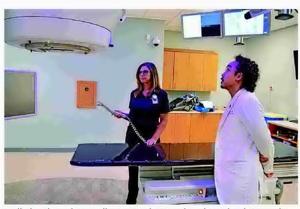A recent study reveals that bribery and money laundering are more widespread in the United Kingdom than previously recognized. According to research conducted by the *University of Surrey* for the International Society of Economic Criminology (*ISEC*), approximately 16% of UK adults have been approached to participate in bribery activities in the past year. Furthermore, around 11%, equating to roughly 5.8 million individuals, reported being asked to facilitate the transfer of funds possibly linked to criminal activities.
The findings indicate a troubling trend: more than half of those approached accepted to engage in these illicit activities. In 2023 alone, 9% of respondents admitted to paying a bribe, while 7% reported involvement in money muling—actions that support money laundering. Notably, the risk of participation is significantly higher among younger adults, particularly men. Among those aged 18 to 40, the survey found that 29% were solicited for bribes, and 16% consented to pay them. In terms of money mulling, 22% were asked, with 13% agreeing to participate.
Corruption’s Everyday Presence
The *University of Surrey* report highlights that requests for bribes and money laundering are predominantly occurring in the private sector, which accounts for 56% of solicitations. The public sector follows at 25%, while the charity sector sees 10% of approaches, and 8% fall into other or unknown categories.
Dr. Jack Whittaker, a lecturer in criminology at the *University of Surrey* and co-author of the report, emphasized the alarming implications of these findings. “These findings are a wake-up call,” he stated. “Corruption is not something that happens far away or only in high-powered boardrooms. It is present in everyday life—within workplaces, financial dealings, and routine transactions. Most concerning is that people are being drawn in because it is presented as normal or easy, and that normalization is how corruption spreads.”
Despite the survey’s alarming revelations, official statistics suggest a different narrative. Police in the UK record only between 100 to 170 corruption offenses each year, compared to approximately 2,000 to 3,700 money laundering offenses. The study indicates a significant disparity between actual experiences of the population and what law enforcement agencies report.
Understanding the Hidden Crisis
The research employed an anonymous online survey involving 1,000 UK adults, selected to reflect the national demographic regarding age, gender, and region. Participants were questioned about their experiences with bribery and money laundering in the preceding year. This method allowed for the disclosure of sensitive experiences without fear of judgment or legal repercussions, providing a more accurate understanding of these hidden activities.
Dr. Whittaker expressed concern about the gap between recorded offenses and the reality reported by respondents. “While police document only a few hundred bribery offenses annually, our survey suggests that millions may have faced bribery requests. Similarly, tens of thousands of people might be unknowingly engaged in money mulling or feel pressured to participate,” he said.
To address this hidden crisis, Dr. Whittaker advocates for stronger public awareness about the operations of bribery and money muling. He calls for enhanced educational initiatives in schools and universities, more visible communication from banks and employers, and practical guidance for individuals uncertain about the legitimacy of offers they receive.
The report underscores the pressing need for systemic change to combat the normalization of corruption in everyday life, highlighting the importance of transparency and education in reducing the prevalence of these illicit activities.
For further details, refer to the study titled “ISEC UK Bribery & Money Laundering Experience Indicator: Measuring Public Exposure to Bribery and Money Muling in the UK,” published by the *International Society of Economic Criminology*.







